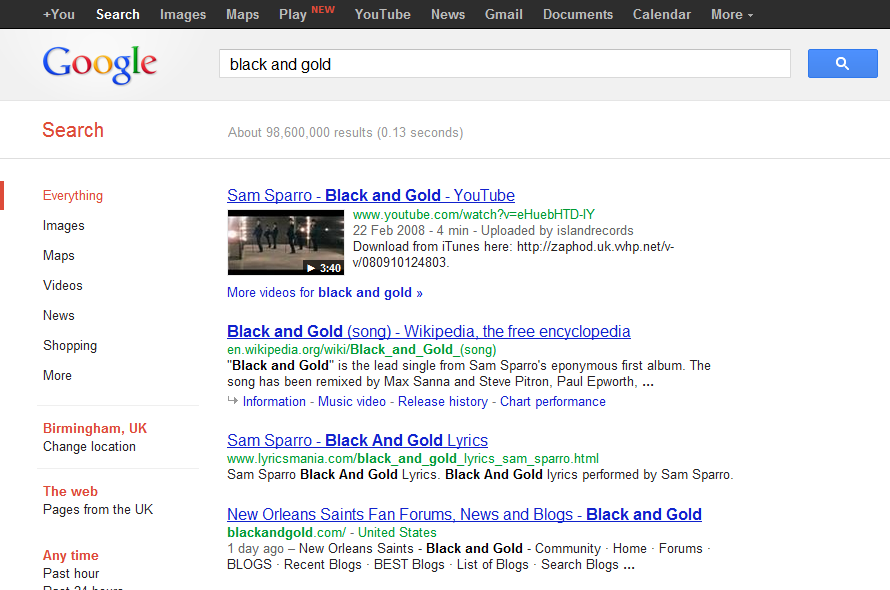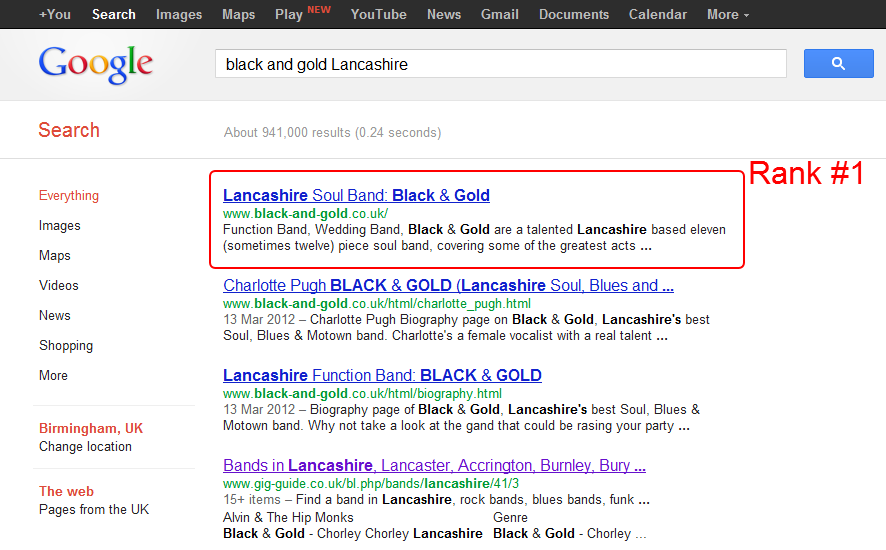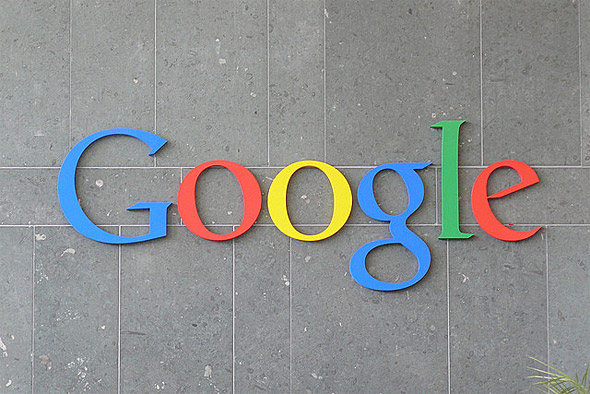Musicians, record labels, artists and SEO… Sounds like a strange combination huh? The majority of musically gifted individuals won't even know what SEO is and may be looking at this blog post title and thinking what on earth this has to do with them... please, bear with me on this one; it's definitely important to you!
Search engine optimisation (SEO) is the process of optimising a website to rank higher than its competitors in the same field for a specific phrase when people type in a search query on the search engines. It is a huge global business in the modern era and is something us as musicians need to address in order to gain maximum exposure from the fastest growing marketing platform on the planet – the World Wide Web.
The modern world is waking up to newer, more technical gadgets and gizmos every day, so we - mere musical mortals - need to follow in the same footsteps and optimise our act to be able to cope in the digital era.
Granted, some readers of The Unsigned Guide will have their own websites, others won't. But for those amongst you that do, you need to be able to stand out from the millions of other websites on the net when searchers type in your name, your location, your genre or your song lyrics...
...and for those of you that don't have a website, maybe you're not doing enough and should try evolving to 2012 standards.
"How do we do SEO?"... I might hear you say...
Well, first of all, you need to rank well for your band/artist's name. This, in today’s digital era, shouldn’t be anything too generic otherwise it’s likely to get lost - especially for unsigned artists without a big following or a lot of exposure.
Specific Keyword Targeting
There's a band in our local area of Lancashire called Black & Gold and as you can see in the screen shot, they fail to rank for even their band name:

Sam Sparro and his hit single Black & Gold dominate the top spaces. This may seem like a bad result for the Lancashire band as they struggle for traction - even for their band name.
This may seem like bad news, however the good thing about this is that the majority of searchers typing in the query 'black and gold' will actually be trying to find the Sam Sparro song, so if the Lancashire band Black & Gold were ranking number one for the phrase 'black and gold' then they would receive the lion's share of the traffic to their website which would have a detrimental effect...
The majority of searchers will land on their website and leave immediately because they were looking for Sam Sparro's song.
Google and the other search engines have very sophisticated monitoring and data analysing software available at hand and would recognise this behaviour and penalise accordingly; de-valuing the Lancashire band's website as a result for not offering what the majority of searchers were looking for when typing 'black and gold' into Google.
So it is important to rank for specific targeted keywords that you know your fans and followers are searching for if they were looking for your website. An example can be shown in the next screen shot:

This is a screenshot of the search engine results page when you type in the query 'black and gold Lancashire'.
As you can see, the band is ranking at number one for the phrase. This is great news because the people who are typing in the search term 'black and gold Lancashire' are more than likely looking for the Lancashire soul band called Black & Gold. So as a musician, it's vital to rank for terms that your target market will be searching for as opposed to the more generic terms.
As with the search engines recognising user behaviour for websites, it would be great for the Lancashire band if they ranked for 'black and gold Lancashire' rather than the generic term 'black and gold' as searchers will click onto their website and will spend time looking around the site; ultimately finding what they were looking for in the information contained within. Google and other search engines will recognise the user interaction through the sites pages and will notice the increased time spent on the site and will increase the value of the site; because after all, Google's job - as a search engine - is to return the most valuable and relevant websites for what the searchers type in.
Local SEO for Musicians
Not only does the localised search term of 'black and gold Lancashire' bring a more relevant target market to the Lancashire band's website but specific search terms are generally easier to rank for than generic terms. For instance, according to the online , the term 'black and gold' has a keyword difficulty of 53% whereas the term 'black and gold Lancashire' has a keyword difficulty of 20%.

The higher the percentage, the more competitive the search query and the more difficult it is to reach the top spot. Anything 70%+ is considered too difficult to even bother trying; 50%-69% is very difficult; 30%-49% is considered manageable but competitive and 29% or lower is considered easily manageable and worth putting your shoulder behind.
So by targeting a more local/specified search query, musicians are able to rank higher and add value to their site every time someone visits their site. By really fine-tuning the search queries, musicians are able to really focus the traffic to the site and only bring in visitors who are likely to interact - whether that is to buy music, purchase merchandise or to find out information about forthcoming gigs.
Genre Specific Optimisation
Because music is so genre orientated in general, it's essential that your searches are optimised for those genres also. So, if you were a DJ from Kent who played Funky House music, you would want to be ranking for the queries 'Funky House DJ in Kent' or 'House DJ South East'.
Optimising for these types of queries will allow you to receive relevant traffic and visitors to your website without people knowing you existed. You could even get a load more gigs from optimising your site this way as people typing in the query 'funky house DJ in Kent' are more often than not looking for a funky house DJ in Kent and if you were ranking number 1 for this phrase then it would be your site that the majority of traffic visited rather than someone else's.
Lyrical Optimisation
Another great way to get traffic to your site without your name being too well-known is by optimising your site to include your song lyrics. For instance, you may be an Indie band that has played some gigs at a few bars recently. A lot of those punters in the bar that night may have never heard of your band before, however while they were enjoying their night, you played a great track that they loved and it really stuck in their heads.
How many times have you woken up in a morning - still a bit hazy from the night before - with the music still playing in your ear? You'd be surprised how many people remember certain lyrics from the songs they heard but forget the name of the band. If your website was optimised for your lyrics, then the punter in the bar would simply need to type in the lyrics which they remember and should be directed to your site. Lyrical genius!
Click to read
ABOUT THE AUTHOR
Adam Veitch is Content Lead and writes on behalf of Brandshank. They are a digital marketing agency from Burnley, Lancashire specialising in , record labels and the music industry.










